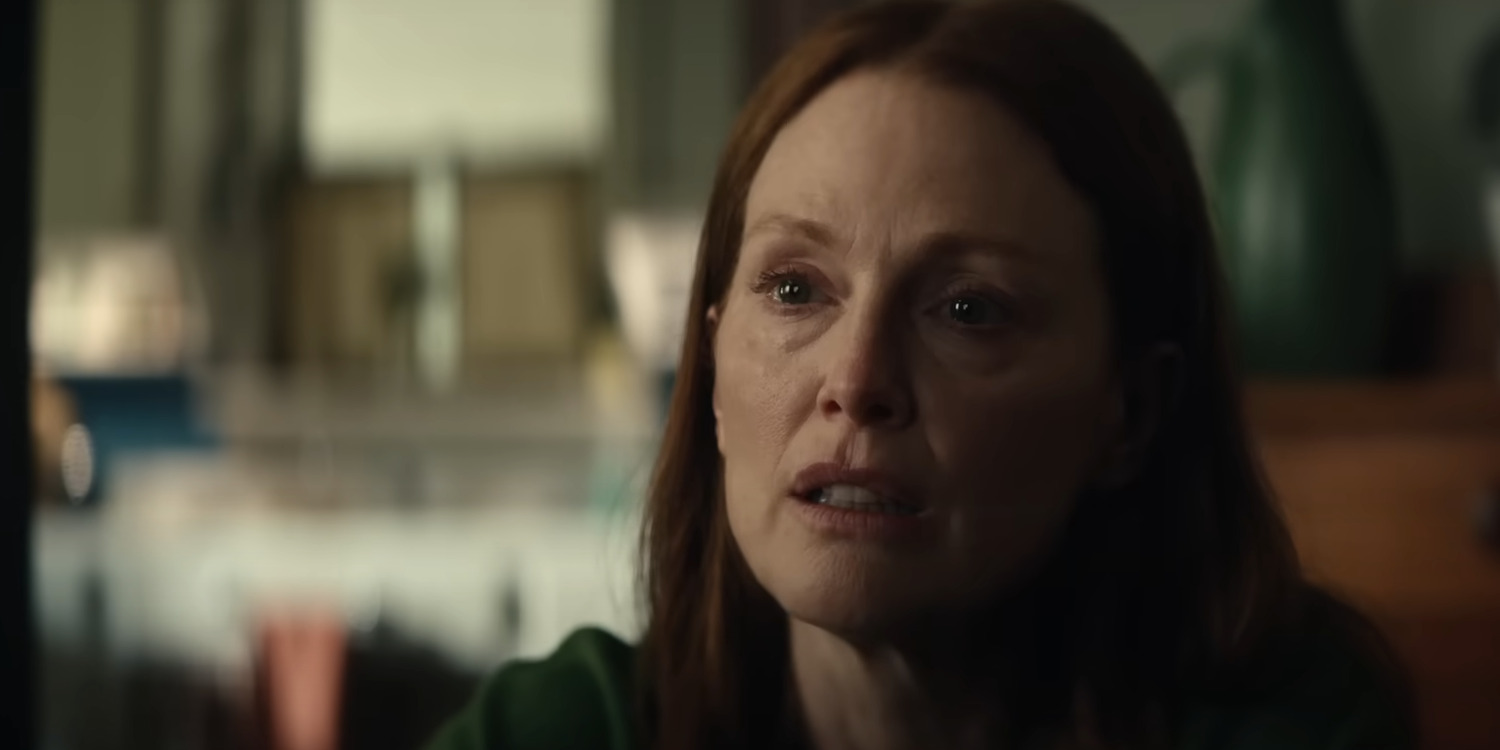Michael Pearce’s ‘Echo Valley’ is a thriller that dives into the exploration of a complicated mother-daughter relationship. The Apple TV+ film follows Kate Garretson, a barn-owner who lives on an isolated, remote farm, mourning the death of the love of her life. Still, when her only daughter, Claire, shows up at her door, it’s hardly a joyous occasion since she has a way of bringing new catastrophes with her. However, this time around, Claire’s problems don’t simply include drugs or cash; instead, she brings home a bloodied t-shirt and a dead body in the backseat of her car. As a result, before she knows it, Kate is stumbling onto a dangerous game that might just take her down with it.
The story remains ripe with nuanced interpersonal dynamics that become the central drive of the narrative. Furthermore, highlighted and well-defined themes of addiction, emotional manipulation, criminal conspiracies, and more add a layer of genre-typical authenticity to the film. As a result, the potential real-life connection behind Kate’s tale and the Echo Valley Farm, where it all unfolds, remains worth exploring.
Echo Valley is a Fictional Tale Built on a Realistic Foundation
Although ‘Echo Valley’ charts a tale that remains emotionally and narratively realistic, the film itself remains a work of fiction. Kate and Claire’s characters, as well as everything that transpires between them, is a fictional story penned by Brad Ingelsby, the screenwriter who famously worked on other tense dramas including ‘The Way Back’ and ‘Mare of Easttown.’ The latter project notably dealt with another complicated mother-daughter dynamic, exhibiting the creator’s prowess in the nuances of such relationships. Perhaps, for the same reason, his exploration of the same topic through the protagonists of this Michael Pearce directorial retains a significant sense of realism.

One of the largest demons that survives between Kate and Claire’s relationship stems from the latter’s addiction issues, which often turn her manic, aggressive, and even physically violent. The film treats the sensitive topic of addiction and its negative impacts on familial relationships with care and authenticity. For instance, Director Pearce, known for other character-driven films like ‘Encounter’ and ‘Beast,’ worked individually with each actor to ensure they were in sync regarding the characterizations of their distinct roles. However, more than that, Claire’s emotionally taxing and socially relevant struggles with substance abuse provide a grounded premise for the overarching tale.
In real life, addiction continues to be an overwhelming problem blanketing the country. Reports suggest that more than 70 thousand people die of drug overdose every year. This statistic continues to grow with a yearly rate of 4%. Likewise, 25.4% of people who dabble in illegal drug usage have developed a drug disorder of one kind or another. On the other hand, sources also suggest that addiction can quickly lead to the destruction of trust within familial circles, which we see happen to Kate and Claire’s small family as well.

From betrayal through lies and secrets to financial and emotional manipulation, severe conditions can break down relationships in various ways. Therefore, the tragic tale that unravels in the Echo Valley Farm remains reminiscent of the bleak off-screen reality. For the same reason, even though Kate and Claire’s characters aren’t based on real people or inspired by real events, their stories remain reflective of reality. Nonetheless, ultimately, there’s no connection between real-life and the on-screen tale, cementing the latter in the world of fictionality.
Echo Valley Farm, the Pennsylvania Farm, is not Real
Similar to the film, the titular farm, ‘Echo Valley Farm,’ is also a fictional element. The location serves as the primary location for the story, as Kate’s estate, where she grooms horses and provides horse-riding lessons. The barn itself was created with the explicit purpose of playing an instrumental role within the grieving mother’s story. In real life, the set behind the place was an amalgamation of various locations. Notably, New Jersey’s Hunterdon County and Morris County become the backdrop for the project’s more farmside locations.

Interestingly enough, despite the Pennsylvania-focused on-screen setting, no definitive real-life locations were employed in that state. Narratively, the fictional farm serves as an intimate symbol of Kate’s situation. She used to live a happy life on the property with Patty, the farmhand she fell in love with. Therefore, now, after her death, the place serves as a perpetual reminder of what Kate has lost. Therefore, in some ways, the barn and the farm around it become a cage of her feelings, as she’s even held hostage in it at one point. As such, alongside tying the tale to a grounded setting, the farm also becomes a crucial narrative tool.
Read More: Is Families Like Ours Based on a True Story?


